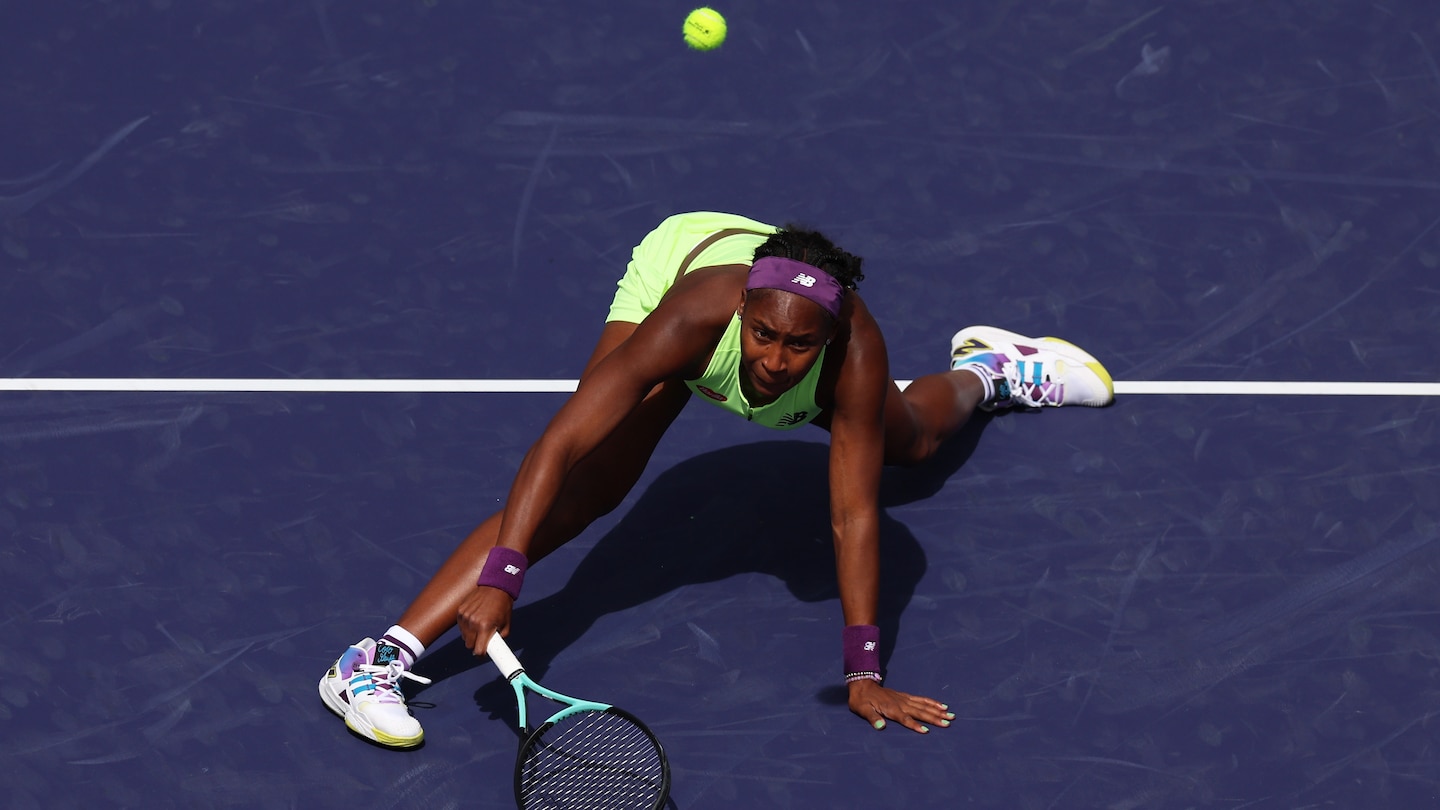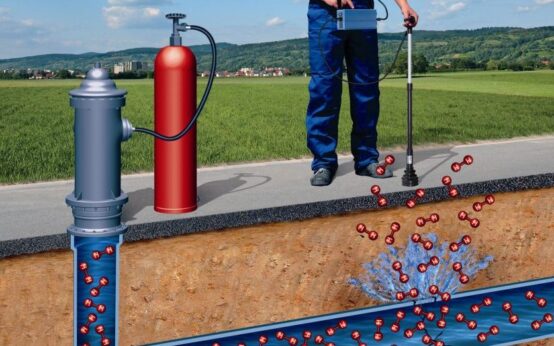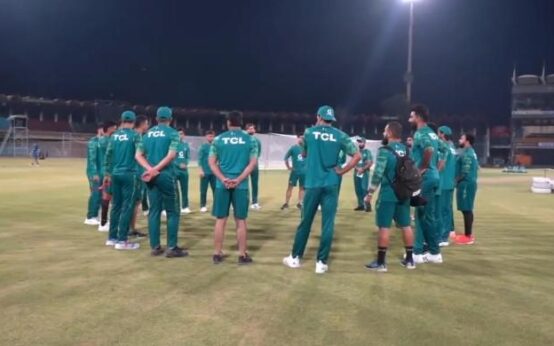It has hung around tapping its bloody damned watch harder than ever at Rafael Nadal, Andy Murray and Djokovic, but this time it has managed to frequent conversations around Coco Gauff. Right. That’s because Gauff’s days as a teenager, days that really did come to seem endless, ended at midnight. Wednesday, March 13, christens her as 20, and while it’s one thing to end one’s teens by fielding questions about ending one’s teens in interviews in front of crowds (on court in the world’s second-largest tennis stadium) or reporters (in a press room), it’s another to do so while on the cover of Vogue.
“I’m really happy with how my teenaged years went,” that old sage began with her answer on court in a post-match interview Saturday, her listeners perhaps finding Gauff’s teens preferable to theirs spent strategizing for fake IDs.
“I did everything that I wanted to do, which the biggest one was to win a major as a teenager,” she continued in a blaring statement of her towering self-expectations, fulfilled when she won the U.S. Open in September just as the teen curtain started to droop.
“So now, hopefully I can win a couple more in my 20s and, yeah, age is just a number,” she said, all the retirees perhaps nodding hopefully.
And: “I’m going to be out here for at least another 10 years, so I’ll see you guys then.”
The American cheering swelled again just then, having ushered her through a tough one-set deficit and third-set tiebreaker against No. 47 Clara Burel of France, the noise big and helpful even though the match began at the blasphemous hour of 11 a.m.
It had a hopeful sound at a tennis moment full of wistful sounds and absent sounds.
In the 50 years since this BNP Paribas Open sprouted from the sand, long before it went from a gnarly little bud to what many fans call a fifth major and one scholar calls “all Grand Slammy,” they’ve seen some coming-and-going, but this time they’re seeing a whole slew of going. As anyone present in the 1980s when this event counted as nascent could tell you, the only constant is the stunning mountain backdrop. Even those abundant sorts walking around the grounds in their “RF” Roger Federer caps — he won this thing five times — are committing nostalgia by now. As they pulled on those caps to help fight the sun, Federer appeared upstate at a different courtside in San Francisco, watching Stephen Curry et al.
As the tournament approached, the return of Nadal approached with it, except that his 37-year-old body wouldn’t have it, and he withdrew “with great sadness” the night before. Even his lovers in their bull-logo gear can feel the chances to witness fading toward nil.
That left an opening night of Milos Raonic, the Wimbledon finalist at a time that nearly has reached eight years ago, against Sumit Nagal, who admirably just cracked the top 100 at age 26 after becoming the first Indian man to topple a seed in a major (Alexander Bublik, Australian Open) since 1989 (Ramesh Krishnan over Mats Wilander).
“But Nadal’s not playing,” one guard at the security stand said outside the stadium.
“No, I meant Nagal,” another said.
You could just about count the fans in the harsh 63-degree air for Raonic-Nagal, and you could see through the luxury boxes clear to their kitchen faucets, as Raonic won the first set by a noiseless 6-3 before persistent drizzle became desert rain and chased everybody away for a long and dreary while before Raonic came back and finished with another 6-3.
Nadal, of course, would have stopped the rain.
Murray had gone by then, too, in straight sets to No. 5-ranked Andrey Rublev, and so somebody asked if the three-time Grand Slam tournament champion and 11-time finalist feels weary of fielding questions about his impending retirement. “I feel like no one is listening to me!” he said, drawing laughs, the retirement up ahead as TBD come summertime.
Already he had spoken words that reiterated the unbeaten-ness of time, to reporters in the press room: “But I feel like, you know, I gave it, you know, a pretty good go. You know, I worked. I did work hard. I put a lot into it. You know, I didn’t, yeah, I didn’t miss many days of training through lack of discipline or poor decisions. And, yeah, gave it a good go. So in that aspect, yeah, I can’t have too many regrets with that.”
That sounded sigh-worthy, and that left the Rushmore types of recent years with Djokovic, the greatest player ever, who returned after an absence of five years linked partly to his absence of coronavirus vaccination. He played soccer in the players’ green patch of grass next to their outdoor weights area as viewers gawked from the railings above, and his emergence from the practice courts Friday wrought a mass shriek and an autograph frenzy.
Then he lurched through the maximum six sets in two matches and lost in the round of 32 to one Luca Nardi, a 20-year-old Italian who is ranked No. 123 and who got into the tournament as a lucky loser beaten barely in qualifying by David Goffin, and whose lifetime total of tour-level wins reached four. Nardi’s season so far had included losing to No. 462 Ramkumar Ramanathan of India — in Bengaluru, in Nardi’s defense — as well as No. 206 Daniel Rincon and No. 257 Dane Sweeny — all of whom, it must be said, are incredible tennis players in a world ever meaner between painted lines.
Nardi’s disbelief included that there’s a Djokovic poster on his bedroom door, thus, “Every night I go to bed, I see Novak,” as Nardi told reporters.
Djokovic’s disbelief included both praise of Nardi, who won, 6-4, 3-6, 6-3, and this assessment to reporters Monday night: “My level was really, really bad.” While both sentiments were true, the latter helped set a theme set to loom above all of 2024 given both Indian Wells and the Australian Open: Has time gotten bitchy on Djokovic, too?
All the while, Carlos Alcaraz, still just shy of 21, defends his title and spreads his glee. Even when a group of people, especially one woman, took so long to find their seats just behind Alcaraz that it seemed time might run out on everyone present, all of it as Alcaraz prepared to serve midway through a first set, Alcaraz simply waited and waited and beamed that toothy grin that’s gathering in familiarity around the planet.
And as Gauff headed toward 20, almost five years after she boomed to fame at 15 at Wimbledon in 2019 opposite Venus Williams, who lost in three sets here at 43, thus commendably messing with time, Gauff assessed the age 20 itself. She saw 21 as “the bigger age for more Americans,” and told reporters Monday, “Every year at this tournament it’s going to be my last match of some age.” After 18 Grand Slam tournaments, six quarterfinals, three semifinals, two finals and one triumph, she said winning a big one while a teenager had been “probably the only time-constraint goal I ever made for myself.”
Now time has struck again, even if less of a prude than usual.


 Best Underground Water Leak Detection Equipment 2024
Best Underground Water Leak Detection Equipment 2024  Best Backyard Ideas: Turn Your Outdoor Area Into a Creative and Calm Haven
Best Backyard Ideas: Turn Your Outdoor Area Into a Creative and Calm Haven  Babar, Rizwan are good players but not whole team, says Mohammad Hafeez
Babar, Rizwan are good players but not whole team, says Mohammad Hafeez  Pak vs NZ: Green Shirts aim to bounce back against Kiwis today
Pak vs NZ: Green Shirts aim to bounce back against Kiwis today